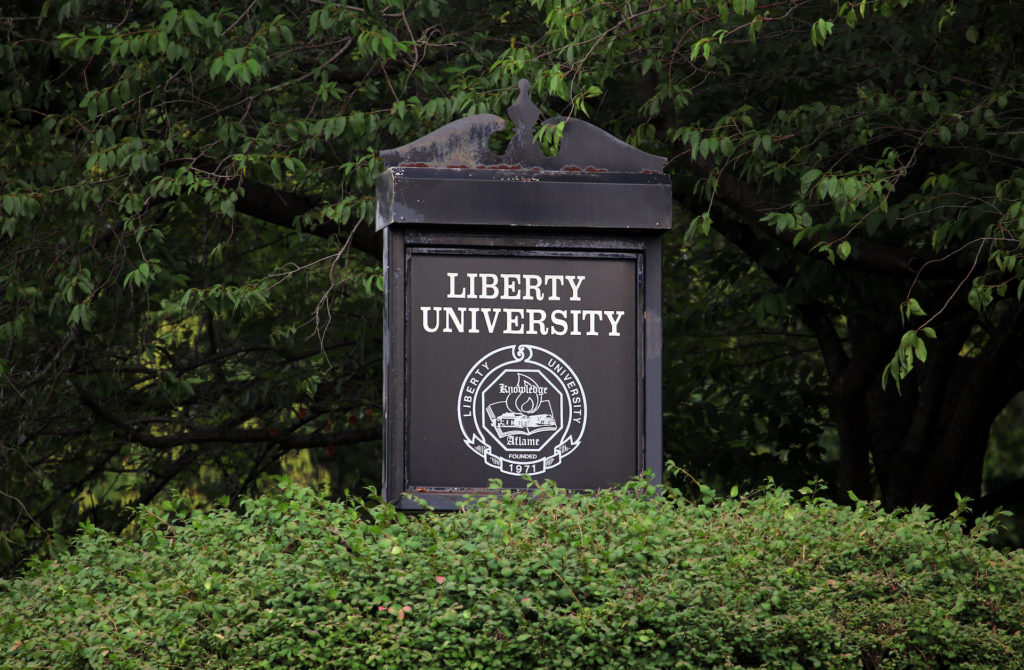Breaking the Silence Under Liberty
Liberty University, an evangelical Christian school, ignored sexual assault reports and threatened students with being expelled and fined if reported to the police.
Note: this article includes sexual assault, violence, and attempted suicide descriptions.

It is known that sexual assault survivors are mostly dismissed by questions of what they were wearing, how much they had to drink, and what their intentions were. Liberty University did no different for more than 20 of the sexual assault victims who confided in the school’s beloved quote, “Speak up for those who can’t speak for themselves, for the rights of all who need an advocate. -Proverbs 31:8.” That verse is supposedly championed by Liberty’s Title IX lead official Elyssa Bucci, who was tasked with handling abuse and discrimination. However, it was Bucci who turned away reports and threatened students and employees.
Title IX is a civil rights law that bans sexual discrimination on campuses that receive federal financial aid. Liberty University students receive $800 million a year in federal aid, which allows Title IX eligible on campus.
BREAKING: Liberty University, founded by Jerry Falwell, threatened to punish students who reported being raped.
— Eric Umansky (@ericuman) October 24, 2021
An official told us he was just fired for raising concerns. He called it “conspiracy of silence.”https://t.co/PxrCQ8avn4
By @hannah_dreyfus
Sadly, Liberty did not uphold the law for any sexual assault survivors, especially Elizabeth Axley. Axley was a freshman at Liberty in 2017 when one Saturday night at a Halloween party, she was raped by another student. From that horrific night, Axley recounted that she had been heavily drinking. But, she was coerced into sex as the rapist held her down with his hand pressed over Axley’s mouth. Axley returned to her dorm and called campus police, who then escorted her to a local hospital. The nurse discovered 15 bruises and lacerations across her arm, torso, and face.
The morning after, Axley reported the assault to her resident adviser. But, they advised her not to report the assault for having violated Liberty’s rule against drinking and premarital sex. Instead, the RA offered to pray with Axley.
Axley explains, “I was really confused. They were making it seem like I had done something wrong. I didn’t want to get fined or punished, but I wasn’t going to let this keep me from reporting my assault.”
Bravely Axley did not give up the fight. She began collecting evidence and asking friends if they had seen anything that night at the party. One of Axley’s friends explained that her rapist was acting very strange and extremely physical. However, he was not drunk. Another friend, Logan Pratt, went to the Title IX office to report Axley’s assault. But, he was expelled for drinking, which was prohibited on campus.
In addition, Axley also took pictures of her wounds and bruises as proof of the assault. She gathered all her evidence and took it to Bucci. Expectedly, Bucci only focused on how much Axley had to drink and why she was at the party. Five months later, Bucci invited Axley into her office to review the file Liberty was investigating. The photo evidence of Axley’s assault was missing from the file after being deemed too “explicit.”
Axley noted, “I had been relying on them all these months to take my evidence into account when considering my case, and it wasn’t even in my file.”
After a few days, Axley received word that the University was moving ahead with the investigation but required a signature from Axley. The document acknowledged Axley’s violations against Liberty’s code of conduct which bans drinking and “being in any state of undress with a member of the opposite sex.”
Later, Axley received a letter stating Liberty deemed the rapist not responsible for the alleged report of rape. Axley appealed the decision but was dismissed. As a result, there was a steep decline in Axley’s academics and mental health, which led to a suicide attempt. She feared seeing her rapist on campus or in class, so she stayed in her dorm for safety. Today, Axley is focusing on her healing and path to rebuilding her life.
Unfortunately, there have been countless other students who have signed the document to close their case. The students placed their trust in the administration for help but were dismissed instead. Students were unaware of their ability to turn to the police, which is an obligation for the university to advise their students. Thus, the survivors were traumatized by Liberty’s rejection and felt alone in their assault.
At Liberty University, students have to abide by “The Liberty Way,” a code to “encourage and instruct our students how to love God through a life of service to others.”
— Eric Umansky (@ericuman) October 25, 2021
Any sexual contact outside marriage is punishable by a $300 fine, 30 hours of community service, or expulsion https://t.co/hvt7YJGYvS pic.twitter.com/KWmELvyZ5U
Stories similar to Elizabeth Axley’s, have been buried by Liberty. So far, Liberty officials have no comment on the reports. The only action they chose was to disable comments on their social media platforms. One Liberty staff member, Scott Lamb, did speak up against Liberty’s inactions for sexual assault. Lamb was the university’s senior vice president of communication until he got fired for being a whistleblower.
Lamb explains that he and another colleague tried to encourage the university to respond to the cases, but they were uninterested. He reports, “We said, ‘Listen, the optics of this are killing us. Is there anything we can message– something? A message of empathy? Or that we’re at least working to get to the bottom of this? And then it dawned on us: They’re not working to get to the bottom of this.” In addition, Lamb explained that cases resulted in “a conspiracy of silence.”
In July, a lawsuit was filed against Liberty for failing to help victims of assault report and file their cases, especially making it difficult when threatening to fine or expel their students. This only brings an ounce of hope to the survivors: Elizabeth Axley, Diane Stargel, Amanda Stevens, Adrianna Rice, Chelsea Andrews, and many more survivors. These survivors are examples of how their strength could not be crushed by Liberty’s cruel and unconstitutional efforts to bully them into silence. Hopefully, the next legal actions will hold Liberty accountable for its failures to protect its students.

Content Writer





